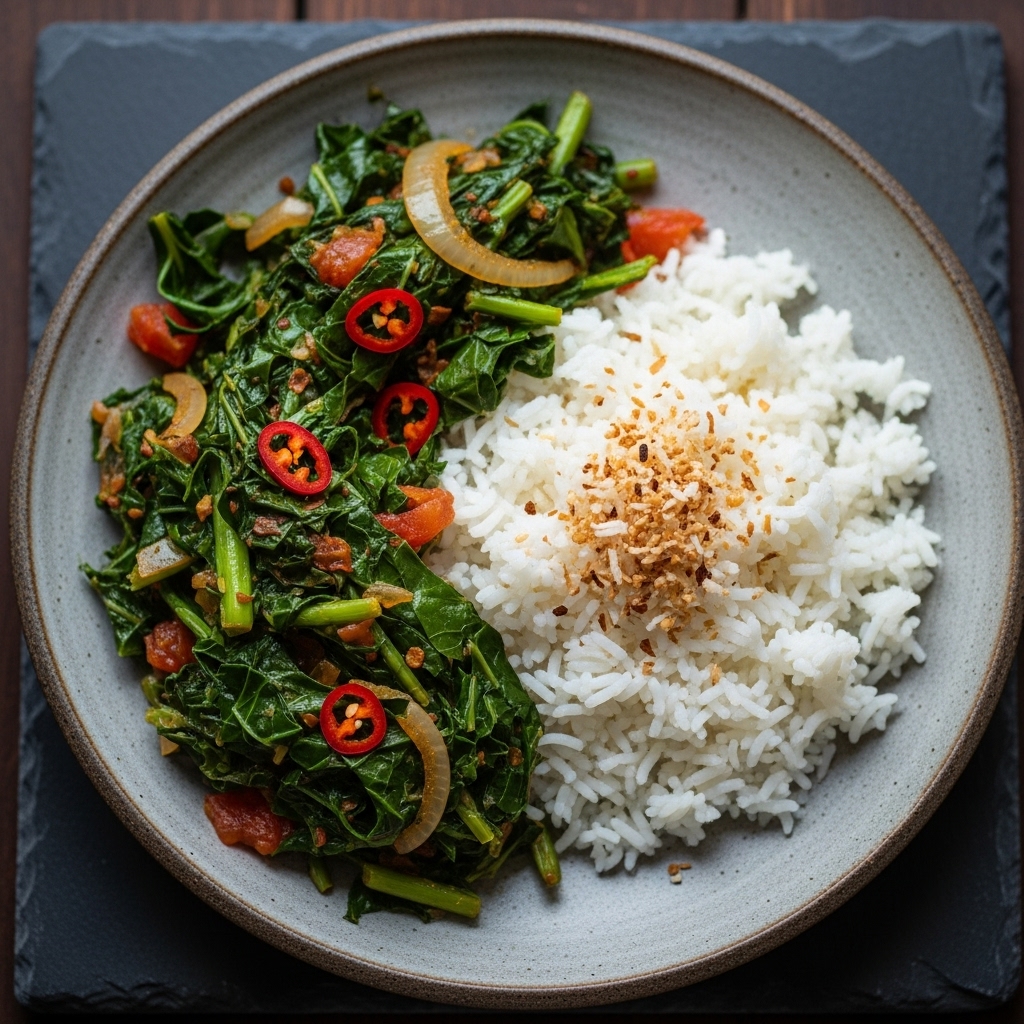
Flavorful Kenyan Lunch: Gluten-Free Sukuma Wiki Stir Fry with Coconut Rice
Discover this easy and flavorful gluten-free Kenyan lunch recipe, featuring a delicious Sukuma Wiki stir fry served over fragrant coconut rice. Enjoy the perfect combination of aromatic flavors and tender textures in every bite!
Allergens
None
Ingredients
- 1. Fresh kale leaves (500g) 2. Tomatoes (3 medium
- sized, chopped) 3. Onion (1 large, chopped) 4. Garlic cloves (2, minced) 5. Ginger (1 tablespoon, grated) 6. Jasmine rice (1 cup) 7. Coconut milk (1 can) 8. Vegetable oil (3 tablespoons) 9. Salt (to taste) 10. Black pepper (to taste) 11. Paprika (1 teaspoon) 12. Turmeric (1/2 teaspoon) 13. Coriander (1/2 teaspoon) 14. Lemon juice (1 tablespoon) 15. Fresh coriander leaves, for garnish
Instructions
- In a large pot, combine rice with two cups of water, coconut milk, salt, and bring to a boil. Reduce heat to low, cover, and cook for 20 minutes or until the rice is tender and all liquid is absorbed. Set aside.
- Heat two tablespoons of vegetable oil in a pan over medium high heat. Add onions and sauté until translucent, about 3 4 minutes.
- Stir in ginger, garlic, paprika, turmeric, coriander, salt, and black pepper. Sauté for another minute to release the fragrance of spices.
- Add chopped tomatoes and cook for 5 minutes until they soften.
- Chop kale leaves into bite sized pieces. Stir them into the pan with the cooked onion and tomato mixture, cover, and cook for 3 4 minutes until wilted.
- Season with lemon juice and additional salt and black pepper to taste.
- Serve Sukuma Wiki stir fry over a bed of coconut rice, garnished with fresh coriander leaves.
Chef’s Insight
1. Using fresh kale and ripe tomatoes will enhance the flavor and texture of the dish.
Notes
1. You can adjust the spices according to your taste preference.
